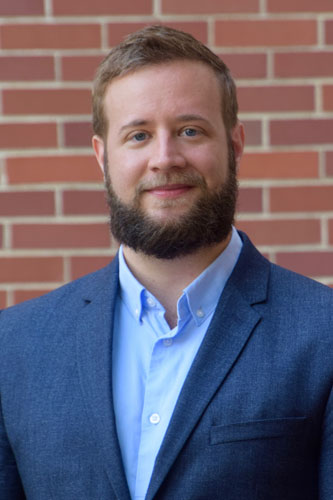 Steven Anderson
Steven Anderson
Steven Andersen, resident postdoc, Rigshospitalet (Denmark)
Greg J. Wiet, faculty mentor
Temporal bone surgery concerns the management of disorders of the hearing and balance organs through microsurgery near critical anatomical structures such as the facial nerve and dura of the brain. Virtual reality (VR) simulation is an efficient training tool. In this project, we are expanding the use of VR simulation and developing patient-specific VR simulation for pre-surgical rehearsal, which allows the surgeon to practice on the patient's specific anatomy before the actual surgery.
Clinical imaging such as CT scans can be imported into the VR simulation environment. This requires substantial post-processing including segmentation of the key anatomical structures needed to precisely represent individual patient's anatomy in the simulator. We are investigating the pipeline from imaging including segmentation to clinical implementation for pre-surgical rehearsal and planning.
Patient-specific VR simulation provides a useful platform for pre-surgical planning and rehearsal: anatomical variants and malformations can be identified early, the surgeon can repeatedly practice the critical steps of the procedure in a risk-free environment, and treatment and surgical interventions including cochlear implantation can be tailored to the individual patient. This will ultimately benefit patients undergoing temporal bone surgery.